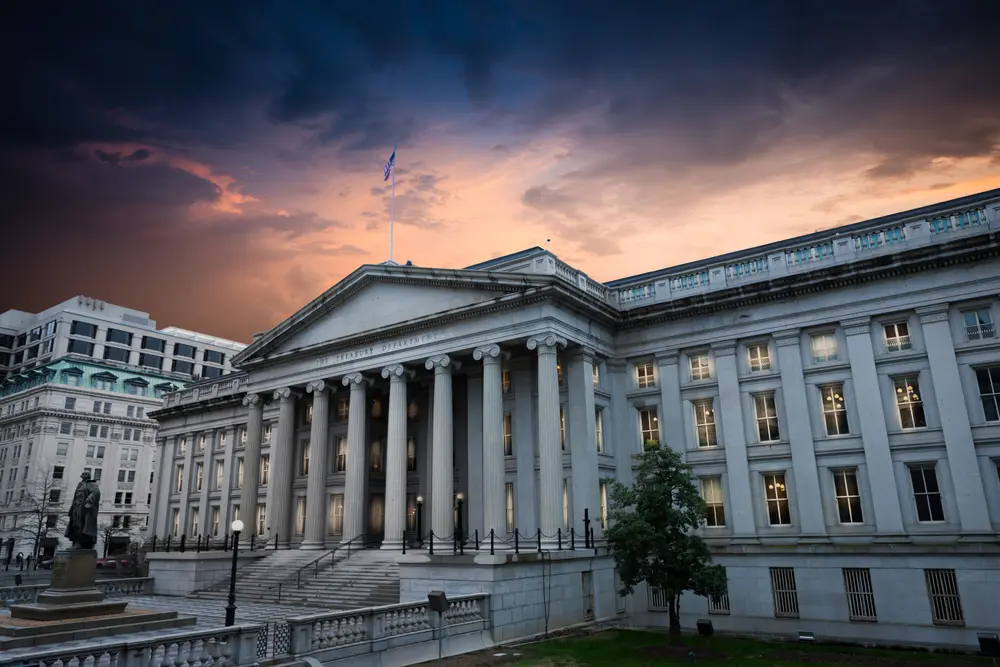In a significant cybersecurity breach, a hacker linked to the Chinese Communist Party (CCP) successfully infiltrated a U.S. Treasury Department system, according to a recent report. The breach, classified as a “major incident,” highlights escalating cybersecurity threats from foreign adversaries and raises concerns about the security of sensitive government data.
Details of the Breach
The attack reportedly targeted an unclassified system within the Treasury Department, exploiting vulnerabilities to gain unauthorized access. While the breach did not compromise classified information, officials have expressed alarm over the incident’s potential implications for national security and government operations.
The Treasury Department has confirmed that it is working with cybersecurity experts, law enforcement, and intelligence agencies to assess the full scope of the breach. A spokesperson for the department stated, “We are taking all necessary steps to address the situation and enhance the security of our systems moving forward.”
Link to the CCP
Intelligence agencies investigating the breach have traced the attack back to a hacker affiliated with the Chinese Communist Party. This attribution underscores ongoing concerns about cyber-espionage activities linked to Beijing, which has been accused of targeting U.S. government systems and private sector entities to gather intelligence and gain strategic advantages.
The U.S. has long viewed cyberattacks from China as a key element of the CCP’s strategy to weaken American influence and bolster its geopolitical ambitions. This latest incident adds to a growing list of breaches attributed to state-sponsored hackers from China.
Escalating Cyber Threats
The breach comes amid heightened tensions between the U.S. and China over issues ranging from trade to military presence in the Indo-Pacific. Cybersecurity experts warn that state-sponsored hacking is a key battleground in this geopolitical rivalry, with attacks targeting everything from government agencies to critical infrastructure and private corporations.
The Treasury Department breach is the latest in a series of cyber incidents targeting federal agencies. Earlier this year, hackers exploited vulnerabilities in software used by multiple U.S. agencies, prompting calls for a more robust and coordinated approach to cybersecurity.
Lawmakers Demand Action
The breach has sparked bipartisan concern on Capitol Hill, with lawmakers calling for a stronger response to cyber threats from foreign adversaries. Some have urged the Biden administration to impose sanctions or other penalties on Beijing for its role in sponsoring or enabling such attacks.
Senator Marco Rubio (R-Fla.), a leading voice on China-related issues, stated, “This attack is yet another example of the CCP’s relentless efforts to undermine the United States. We must respond decisively to protect our national security and hold those responsible accountable.”
Strengthening Cyber Defenses
The incident has reignited debates about the adequacy of federal cybersecurity measures. Experts are calling for increased investment in advanced cybersecurity technologies, enhanced training for government personnel, and stronger public-private partnerships to address vulnerabilities.
The Biden administration has already prioritized cybersecurity in its national security agenda, launching initiatives to protect critical infrastructure and improve threat detection. However, incidents like this highlight the challenges of defending against sophisticated and persistent adversaries.
The Road Ahead
As investigations continue, the Treasury Department and other federal agencies are expected to implement additional safeguards to prevent similar breaches. The incident serves as a stark reminder of the evolving cyber threats facing the U.S. and the critical importance of maintaining vigilance in the face of adversarial activities.
The Treasury Department has vowed transparency in its efforts to address the breach, but the event underscores the need for continued focus on bolstering America’s cybersecurity posture against increasingly aggressive and capable foreign actors.

